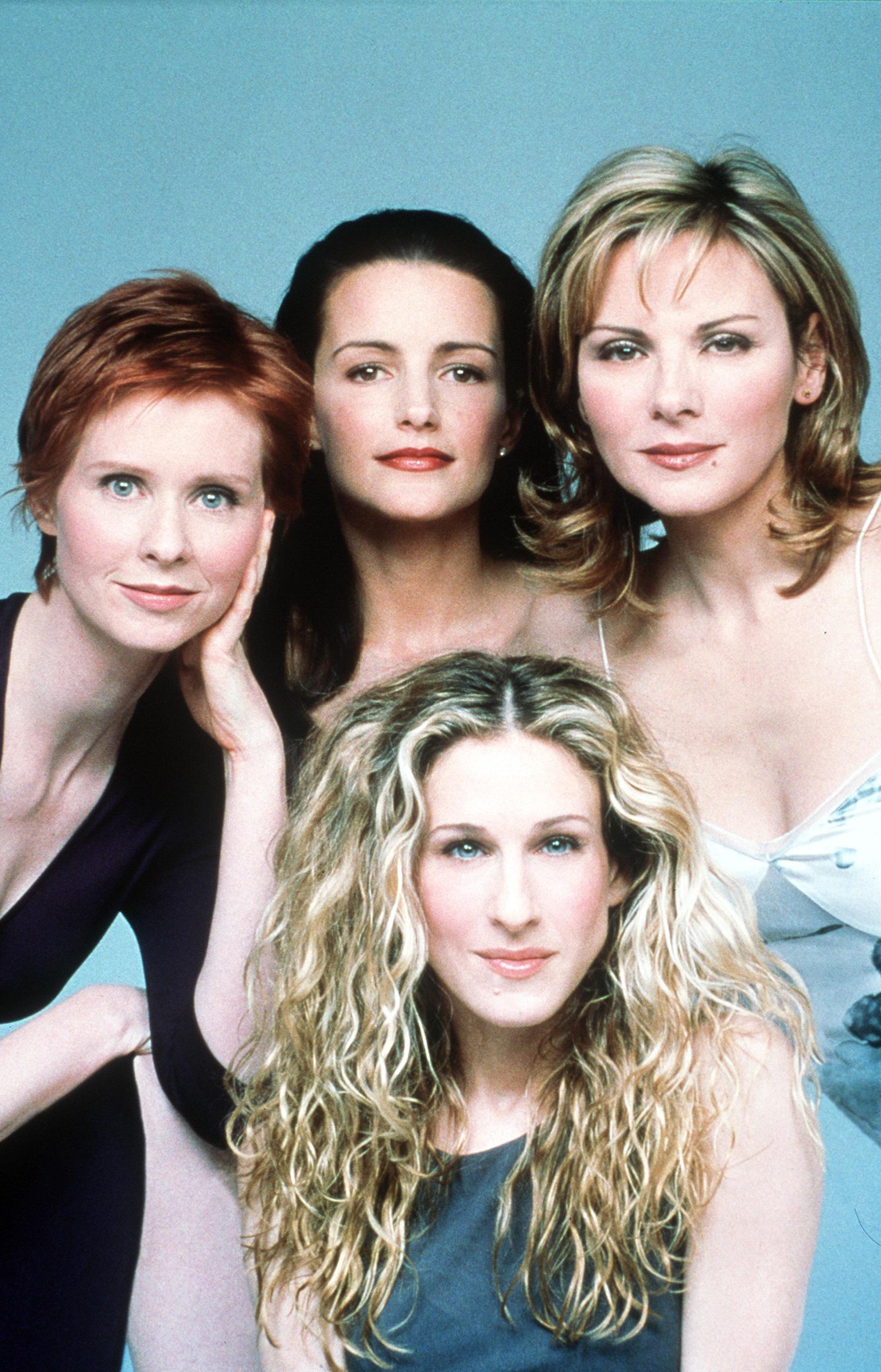The Independent's journalism is supported by our readers. When you purchase through links on our site, we may earn commission.
Carrie is Sex and the City’s messiest and most realistic character – is that why so many people hate her?
As the iconic series returns with a sequel titled ‘And Just Like That…’ – albeit without Kim Cattrall’s Samantha – Adam White can’t help but wonder if people don’t like Carrie because she’s just like we are


Your support helps us to tell the story
From reproductive rights to climate change to Big Tech, The Independent is on the ground when the story is developing. Whether it's investigating the financials of Elon Musk's pro-Trump PAC or producing our latest documentary, 'The A Word', which shines a light on the American women fighting for reproductive rights, we know how important it is to parse out the facts from the messaging.
At such a critical moment in US history, we need reporters on the ground. Your donation allows us to keep sending journalists to speak to both sides of the story.
The Independent is trusted by Americans across the entire political spectrum. And unlike many other quality news outlets, we choose not to lock Americans out of our reporting and analysis with paywalls. We believe quality journalism should be available to everyone, paid for by those who can afford it.
Your support makes all the difference.Sex and the City was marvellous because Carrie Bradshaw was not. A storyline in the show’s fourth season got to the crux of it. Sarah Jessica Parker’s woman-about-town is in a relationship with Aidan (John Corbett), a carpenter so pure and upstanding that he may as well have stepped out of a fairytale. They’ve moved in together, but Carrie also needs her space. “I miss walking into my apartment with no one there and it’s all quiet and I can do that stuff you do when you’re totally alone,” she grumbles to her friends. Later, she tells Aidan she needs an hour to herself when she gets home after a long day. He obliges, she divides the room they’re in with a curtain, and rests on one side of it. Then, after 30 seconds or so, she peeks through the curtain, asks Aidan what he’s doing, and jumps into his lap. All that drama, all seemingly put to bed in less than a minute.
When people say they despise Carrie, or that they adore Sex and the City in spite of its lead character, they point to moments like these. They’re scenes in which Carrie’s endless toing and froing about love, commitment and what she actually wants from life become unbearable. It’s when those vaguely nonsensical thoughts and theories in her weekly newspaper column become manifest. People inevitably get caught in the crossfire. But the repulsion over that kind of behaviour exposes a fundamental misunderstanding of what made the show so good, and why Carrie was the way she was. Yes, she’s Sex and the City’s hero, but she’s its villain, too.
To be a Carrie fan means having to constantly justify it. She’s the least obvious of the show’s main quartet to admit to liking, less sex-positive and subversive than Samantha (Kim Cattrall), less funny than Charlotte (Kristin Davis), and not as principled or, frankly, as smart as Miranda (Cynthia Nixon). The arrival this week of the new Sex and the City sequel series And Just Like That... has only made it more divisive to call the show’s star your favourite.
When Cattrall declined to appear in the new show, while alleging a history of conflict with Parker, it resulted in a series of blanket statements from fans and columnists about the show itself: that Samantha was Sex and the City’s most important character, that presumably more screen time for Parker would result in a weaker show, that Carrie was “the worst”. Only the last one is vaguely true, in that Carrie was generally a nightmare. But she was a nightmare in the way that a lot of us are nightmares, someone embodying our worst moments of self-involvement and wrong-headedness, our bad romantic instincts and our occasional ignorance.
In 2013, Emily Nussbaum argued in The New Yorker that the lack of appreciation for Sex and the City’s “difficult women” and Carrie in particular stemmed from misogyny. “[It’s] the assumption that anything stylised (or formulaic, or pleasurable, or funny, or feminine, or explicit about sex rather than about violence, or made collaboratively) must be inferior,” she wrote. Nussbaum’s essay went viral at the time, and is widely recognised as one of the best pieces of TV criticism in recent memory. It astutely compared Carrie to Tony Soprano, and dubbed her television’s “first female anti-hero”. In recent years, though, an idea has resurfaced that the show was largely frothy, and the resistance to making Carrie “likeable” was a problem rather than the point.
The reaction to Samantha’s exit from the series was proof enough. “There is no Sex and the City without Samantha,” went Rolling Stone, which praised the character as the show’s funniest and its beating heart. Nylon argued that Carrie “wasn’t really all that likeable” in comparison: “She nagged, was deplorably self-centred, and often annoying.” The Atlantic wrote, in a tribute to the departing Samantha, that she was the only character to truly root for: “Amid the male-centric trajectories of the show’s primary characters, Samantha stands out for her resolute dedication to her own needs above all.” The latter illuminated something else. While Carrie exists in cultural consciousness as a figure of big-city aspiration, it’s Samantha who actually seems the most fantastical – someone with total self-belief, confidence and poise. We’d all like to be that person, but most of us are far more likely to embody elements of Carrie instead. Perhaps she was just too real as a result; our mirror image that we desperately didn’t want to see.

But ultimately, it was that nugget of truth that got to the root of the show’s brilliance. Likewise how it got its hooks in us. Our emotional attachment to the show of course came from the fact that it was glamorous and cinematic and witty, but primarily because Carrie could be so outrageous: the time she lost Aidan’s dog, or engaged in a torrid affair with her married ex Big (Chris Noth), or brought Miranda bagels to apologise for letting her down, and then proceeded to talk about herself for 10 minutes. It was that she had a clear understanding of what was wrong but proceeded to do it anyway. It was that she just loved drama, that Big was flash and sleazy and dangerous yet she still ran off into the sunset with him.
And Just Like That… is still being kept under lock and key, with even the trailers declining to reveal anything about the new show’s actual plot. We know it’ll at least be more inclusive – women of colour and non-binary characters are, for the first time in the show’s history, apparently being given actual material to work with – and while original showrunner Michael Patrick King is back, its new writer’s room is far more diverse than it was during its original run. Beyond all of that, though, I hope it maintains Carrie’s messiness, her flaws and her mistakes. I want to be enraged by her choices, and then admit to myself that it’s only because they’re a bit like my own. I believe Sex and the City can survive the absence of Samantha, as well as the horrors of its best-forgotten big-screen sequels. But I am unsure if it could survive a Carrie who’s nice.
‘And Just Like That...’ will air on Thursdays at 9pm via Sky Comedy from 9 December, and can also be streamed via NOW



Join our commenting forum
Join thought-provoking conversations, follow other Independent readers and see their replies
Comments